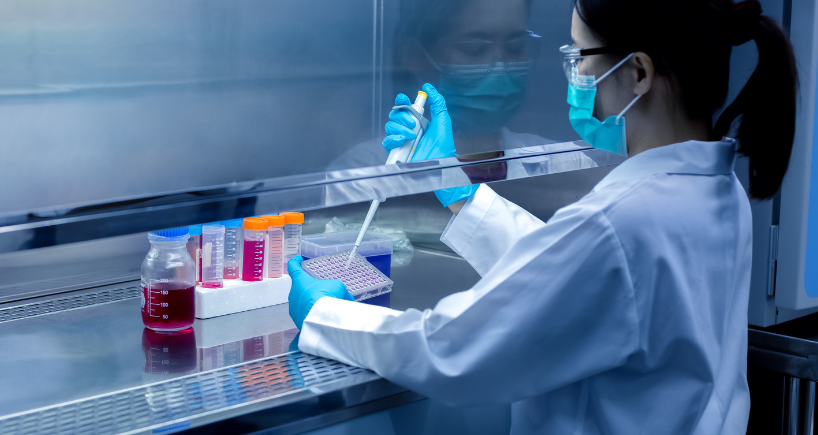
The Role of Genetics in Cancer Risk
Cancer is a complex disease caused by a combination of genetic, environmental, and lifestyle factors. While environmental and lifestyle factors such as smoking, diet, and exposure to carcinogens play significant roles in cancer development, genetics also play a crucial role in determining an individual's risk of developing cancer. In this article, we will explore the role of genetics in cancer risk and how advances in genetic research have led to a better understanding of cancer predisposition and personalized treatment approaches.
Genetic Mutations and Cancer Predisposition:
Genetic mutations are alterations in the DNA sequence that can lead to abnormal cell growth and the development of cancer. These mutations can be inherited from one or both parents or may occur spontaneously during a person's lifetime. Inherited genetic mutations associated with an increased risk of cancer are known as cancer predisposition genes.
Tumor Suppressor Genes: Tumor suppressor genes are responsible for regulating cell growth and preventing the formation of tumors. Mutations in tumor suppressor genes, such as BRCA1 and BRCA2, can increase the risk of developing breast, ovarian, and other cancers. These mutations are inherited in an autosomal dominant pattern, meaning that a mutation in one copy of the gene is sufficient to increase cancer risk.
Oncogenes: Oncogenes are genes that promote cell growth and division. Mutations that activate oncogenes can contribute to the development of cancer by stimulating abnormal cell proliferation. For example, mutations in the KRAS gene are associated with an increased risk of colorectal and other cancers.
Mismatch Repair Genes: Mismatch repair genes are involved in repairing errors that occur during DNA replication. Mutations in these genes, such as MLH1 and MSH2, can impair DNA repair mechanisms and increase the risk of developing hereditary nonpolyposis colorectal cancer (HNPCC), also known as Lynch syndrome.
Hereditary Cancer Syndromes:
Hereditary cancer syndromes are inherited conditions characterized by a predisposition to specific types of cancer. These syndromes are caused by mutations in genes that play key roles in DNA repair, cell cycle regulation, and other cellular processes. Some common hereditary cancer syndromes include:
Hereditary Breast and Ovarian Cancer (HBOC): HBOC is associated with mutations in the BRCA1 and BRCA2 genes and is characterized by an increased risk of breast, ovarian, prostate, and other cancers.
Lynch Syndrome: Lynch syndrome is caused by mutations in mismatch repair genes and is associated with an increased risk of colorectal, endometrial, ovarian, and other cancers.
Li-Fraumeni Syndrome: Li-Fraumeni syndrome is caused by mutations in the TP53 gene and is characterized by a high risk of developing various cancers, including breast cancer, sarcoma, brain tumors, and leukemia.
Familial Adenomatous Polyposis (FAP): FAP is caused by mutations in the APC gene and is characterized by the development of numerous polyps in the colon and rectum, which can lead to colorectal cancer if left untreated.
Genetic Testing and Counseling:
Genetic testing can help identify individuals who carry inherited genetic mutations associated with an increased risk of cancer. Genetic counseling is an essential component of the genetic testing process and involves discussing the implications of genetic test results, assessing cancer risk, and discussing options for cancer screening, prevention, and treatment.
Pretest Counseling: Before undergoing genetic testing, individuals receive pretest counseling to discuss their personal and family medical history, understand the potential benefits and limitations of genetic testing, and explore the psychological and emotional implications of genetic testing.
Genetic Testing: Genetic testing involves analyzing a sample of blood or saliva to identify specific genetic mutations associated with an increased risk of cancer. Test results can help guide personalized cancer screening, prevention, and treatment decisions.
Posttest Counseling: After receiving genetic test results, individuals receive posttest counseling to interpret the results, understand their cancer risk, and discuss options for risk management, such as increased surveillance, preventive surgery, or chemoprevention.
Implications for Cancer Prevention and Treatment:
Understanding an individual's genetic predisposition to cancer can inform personalized strategies for cancer prevention, screening, and treatment. For individuals at increased risk of developing cancer due to inherited genetic mutations, proactive measures may include:
Increased Surveillance: Individuals with an elevated cancer risk may benefit from more frequent cancer screening tests, such as mammograms, colonoscopies, and magnetic resonance imaging (MRI) scans.
Preventive Surgery: Some individuals may choose to undergo preventive surgery, such as mastectomy or oophorectomy, to reduce their risk of developing cancer.
Chemoprevention: Chemoprevention involves taking medications, such as tamoxifen or raloxifene, to reduce the risk of developing certain types of cancer, such as breast cancer.
Targeted Therapies: For individuals with specific genetic mutations, targeted therapies may be available that can effectively treat cancer by targeting the underlying molecular pathways driving tumor growth.
Future Directions in Genetic Research:
Advances in genetic research, including the use of next-generation sequencing technologies and large-scale genomic studies, continue to expand our understanding of the genetic basis of cancer. These insights are leading to the identification of novel cancer predisposition genes, the development of more accurate risk assessment tools, and the discovery of targeted therapies for genetically defined subtypes of cancer.
Categories
Clear allMeet the doctor

- Medical Genetics | Medical Genetics
-
6 Years
-
1000



















